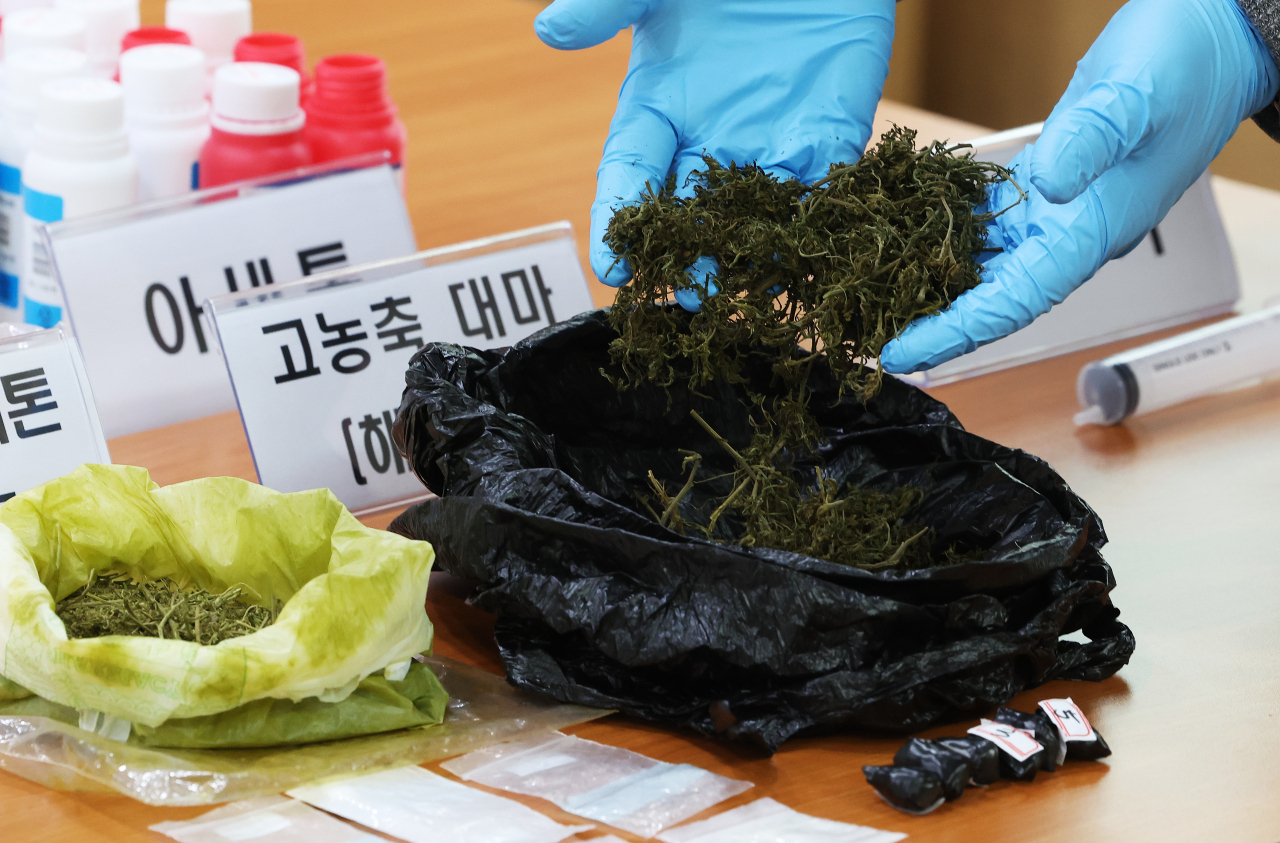3% of adults, 2% of teens have used drugs: survey
By Yoon Min-sikPublished : April 12, 2024 - 16:35

A government survey showed Friday that 3.1 percent of adults and 2.6 percent of teenagers in South Korea have used illegal drugs at least once.
The Ministry of Food and Drug Safety conducted the survey on 3,000 adults and 2,000 teenagers across the country to study drug awareness among local residents. In the survey, illegal drugs refer to substances defined as such by the Narcotics Control Act, which includes marijuana, LSD, methamphetamine, cocaine, heroin, and prescribed opioids.
The survey also showed that 11.5 percent of adults and 16.1 percent of teenagers said they believe their acquaintances have used psychotropic drugs, which refer to drugs like propofol and zolpidem. Such drugs are legal to use with a doctor's prescription but illegal if used without one.
Most respondents said they didn't consider South Korea to be a "drug-free country" -- 86.3 percent of adults and 70.1 percent of teenagers surveyed.
The survey indicated that although the majority of respondents do not engage in illegal drug use, many believe that obtaining such controlled substances would not be difficult. About 89.7 percent of adults and 84 percent of teens said they could get their hands on drugs without having to leave the country, whether that be through social media or their acquaintances
South Korean law punishes anyone who uses, distributes, or carries illegal drugs, including those defined as "soft drugs."
While many respondents said they could easily obtain illegal substances, a substantial portion of those surveyed said they were unaware of the various hazards associated with illegal drug use.
Only 63.5 percent of adult respondents and 67.6 percent of teen respondents said they knew about the risks associated with drug or substance abuse, while only 56.2 percent of adults and 57.8 percent of teens said they were aware of the various problems that could be caused by narcotics use.
One of the recent fads in South Korea has been using the word "mayak," or drug in Korean, to describe food products, such as mayak gimbap or mayak oksusu (corn), likening the products to drugs to indicate that they are very tasty or addictive. While merely a promotional method, some have voiced their concern that such marketing methods may lead people to see drugs as something familiar or safe.
Among the respondents, 46.5 percent of adults and 48.6 percent of teens said using such terms for commercial products does make drugs seem more familiar.





![[KH Explains] No more 'Michael' at Kakao Games](http://res.heraldm.com/phpwas/restmb_idxmake.php?idx=644&simg=/content/image/2024/04/28/20240428050183_0.jpg&u=20240428180321)




![[Grace Kao] Hybe vs. Ador: Inspiration, imitation and plagiarism](http://res.heraldm.com/phpwas/restmb_idxmake.php?idx=644&simg=/content/image/2024/04/28/20240428050220_0.jpg&u=)









